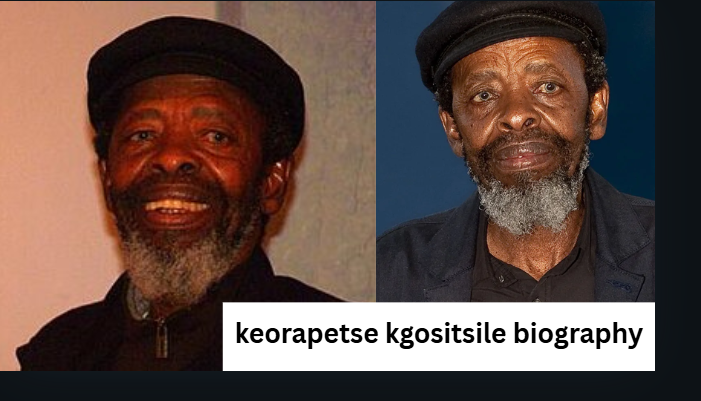
| Field | Details |
|---|---|
| Full Name | Keorapetse William Kgositsile (Bra Willie) |
| Born | 19 September 1938, Johannesburg, South Africa |
| Passed Away | 3 January 2018, Johannesburg, South Africa |
| Age at Passing | 79 |
| Nationality/Ethnicity | South African, Tswana |
| Profession | Poet, journalist, cultural activist, educator |
| Notable Honor | South Africa’s National Poet Laureate (2006) |
| Wife (former) | Baleka Mbete (former spouse) |
| Children | Duma, Nkuli, and Thebe Neruda Kgositsile (Earl Sweatshirt) |
| Cause of Passing | Not disclosed |
| Estimated Net Worth | Not publicly disclosed; income from writing, teaching, speaking |
Who Was Keorapetse Kgositsile?
Keorapetse William Kgositsile—affectionately known as Bra Willie—was a South African poet, journalist, and political activist whose voice crossed oceans and generations. Born on 19 September 1938 in Johannesburg, he rose from the creative ferment of apartheid-era South Africa to become one of the most resonant African literary figures of the 20th century. In 2006, he was inaugurated as South Africa’s National Poet Laureate, a recognition that reflected both his towering artistic achievements and his lifelong commitment to social justice, cultural dignity, and language as a living, breathing force.
Kgositsile’s life traced the arcs of exile and return, rebellion and restoration. Leaving South Africa in 1962, he spent over a decade in the United States, where he immersed himself in the cadences of African-American literature, the radical energy of the Black Arts Movement, and the improvisational genius of jazz. His readings in New York City clubs—half poem, half horn—built a bridge between African and African-American poetics. He was among the first to model that bridge in a way audiences could hear and feel, threading together rhythm, rage, tenderness, and historical memory.
Early Life and Education
Growing up in Johannesburg during the tightening vise of apartheid, Kgositsile discovered that words could open a doorway. As a young journalist and poet, he gravitated to spaces where language crackled—newsrooms, community halls, and circles of activists and artists who believed literature could not be separated from life. This conviction, carried with him throughout his life, formed the backbone of his approach to poetry: the page mattered, but so did the breath, and so did the people gathered to listen.
Exile and the American Years (1962–1975)
In 1962, Kgositsile left South Africa and moved to the United States. Exile can wound or widen a person; in his case, it did both. He pursued higher education and deepened his engagement with African-American culture, especially jazz. On stage, he made poetry feel like music; on the page, he wrote with a compressed intensity that brought continents into conversation. The American years were also his peak period of public readings, and he became a beloved figure in literary circles that valued performance as much as print.
Crucially, he helped bridge African and African-American poetics, encouraging writers and audiences in the U.S. to look to Africa not as abstraction but as kinship, influence, and continuum. That insight wasn’t academic for him; it was lived, born in the daily graft of community, rehearsal, and the stubborn work of creating a shared vocabulary around freedom.
Return to South Africa and National Recognition
Kgositsile returned to southern Africa in the mid-1970s and later to South Africa, carrying with him decades of experience, friendships, and artistic philosophies. His poetry continued to travel—through classrooms, stages, and community events—giving language to the complicated emotions of a nation navigating repression, uprising, and eventual democratic transformation.
In 2006, South Africa named him National Poet Laureate. It was a fitting honor: he had long acted as a de facto laureate for the people, speaking with authority, warmth, and a knowing humor that could puncture pomposity without dimming his compassion. As Laureate, he championed literature in schools and public life, and he remained a familiar presence at festivals and readings, where his voice still carried the snap and sway of jazz.
Style, Themes, and Legacy
Kgositsile’s poetry balances lyric tenderness with political clarity. He wrote about home and exile, the wounds of oppression and the stubborn will to love anyway. He rendered jazz not as a metaphor but as a method: riffs, breaks, call-and-response, the courage to improvise under pressure. His lines could be incantatory, his imagery sharp, his humor sly. Above all, he believed poetry should do something—shake the room, open a door, say what needed saying.
His legacy lives on in several intertwined ways:
-
Cultural Bridge-Building: He modeled how African and African-American traditions speak to one another, enriching both.
-
Performance as Praxis: He elevated the poetry reading into an art of presence, making the poet’s body and breath part of the poem’s meaning.
-
Mentorship and Community: He encouraged younger writers to be bold and to see the craft as a social responsibility.
-
National Memory: As Poet Laureate, he helped inscribe poetry into the public life of a changing South Africa.
Family, Wife, and Children
Kgositsile’s personal life was a thread of companionships, parenthood, and extended community. He was formerly married to Baleka Mbete, a prominent South African political figure. Together and over time within his family life, he had children including Duma and Nkuli. He is also the father of Thebe Neruda Kgositsile, known worldwide as the acclaimed American rapper Earl Sweatshirt. The intergenerational reach of his family—spanning the spheres of politics, literature, and music—speaks to the kinds of conversations he helped start and sustain: across borders, across forms, across time.
Age and Passing
Keorapetse Kgositsile passed away on 3 January 2018 in Johannesburg at the age of 79. The cause of his passing was not disclosed. Tributes poured in from writers, musicians, students, and public figures who had been shaped by his words and his presence. His passing did not silence him; it placed his voice where great poetry often goes—into the ongoing conversation of a people learning how to live more justly with one another.
Net Worth: What We Know (and Don’t)
Publicly available records do not provide a reliable figure for Kgositsile’s net worth. That’s not unusual for poets and teachers whose influence is measured less in royalties and more in cultural capital—the books taught, the stages shared, the lives altered. His income came from writing, teaching, public readings, and speaking. The more enduring value is the one most of us recognize instinctively: the value of a voice that helped a nation (and a diaspora) to hear itself more clearly.
Selected Works and Impact
While this is not a bibliography, readers often seek out the poems and collections that anchor his reputation. Across his body of work, you’ll hear recurring motifs—home and displacement, memory and music, language and liberation. When he read, you could feel the poem take a first breath right there in the room. When you read him on the page, the breath is still audible—syncopated, steady, alive.
For educators and students, Kgositsile is essential reading in courses touching on African literature, diasporic studies, performance poetry, Black Arts Movement history, and the politics of language. His work offers a living map of how literature travels and transforms.
Frequently Asked Questions (FAQs)
1) Who was Keorapetse Kgositsile?
He was a South African Tswana poet, journalist, educator, and political activist, widely known as Bra Willie. He served as South Africa’s National Poet Laureate from 2006.
2) What made his poetry distinctive?
Kgositsile’s work fused lyric intensity with jazz-inflected performance, bridging African and African-American literary traditions and insisting that poetry must matter in public life.
3) Was he involved in politics?
Yes. His artistic life and political commitments were intertwined, particularly through his long-standing engagement with the African National Congress and a broader commitment to social justice.
4) Who was his wife?
He was formerly married to Baleka Mbete. His family includes children Duma, Nkuli, and Thebe Neruda Kgositsile (the rapper Earl Sweatshirt).
5) What is known about his net worth?
There is no verified public figure. His livelihood came from writing, teaching, and public readings, but his greatest wealth is his cultural legacy.
6) When did he pass away and what was the cause?
He passed away on 3 January 2018 at 79. The cause was not disclosed.
7) Why is he important today?
Because he built bridges—between continents, art forms, and generations. His poetry continues to guide conversations about identity, solidarity, and freedom.
Conclusion
Keorapetse “Bra Willie” Kgositsile’s life is a testament to what poetry can do when it walks into the world with its sleeves rolled up. He wrote as if language could loosen the knots of history—and often, in his hands, it did. From Johannesburg to New York and back again, he made community wherever he read, taught, laughed, argued, and listened. He passed away in 2018, but the conversation he started keeps going—every time a young poet picks up a pen, every time a reader leans closer to a line, every time a crowd falls quiet to let the words breathe.
If you’re meeting him for the first time, start anywhere. The poems will show you where to go next.
Disclaimer: The information provided in this biography is based on publicly available sources and is intended for informational purposes only. While we strive for accuracy, some details may be subject to change or interpretation.






